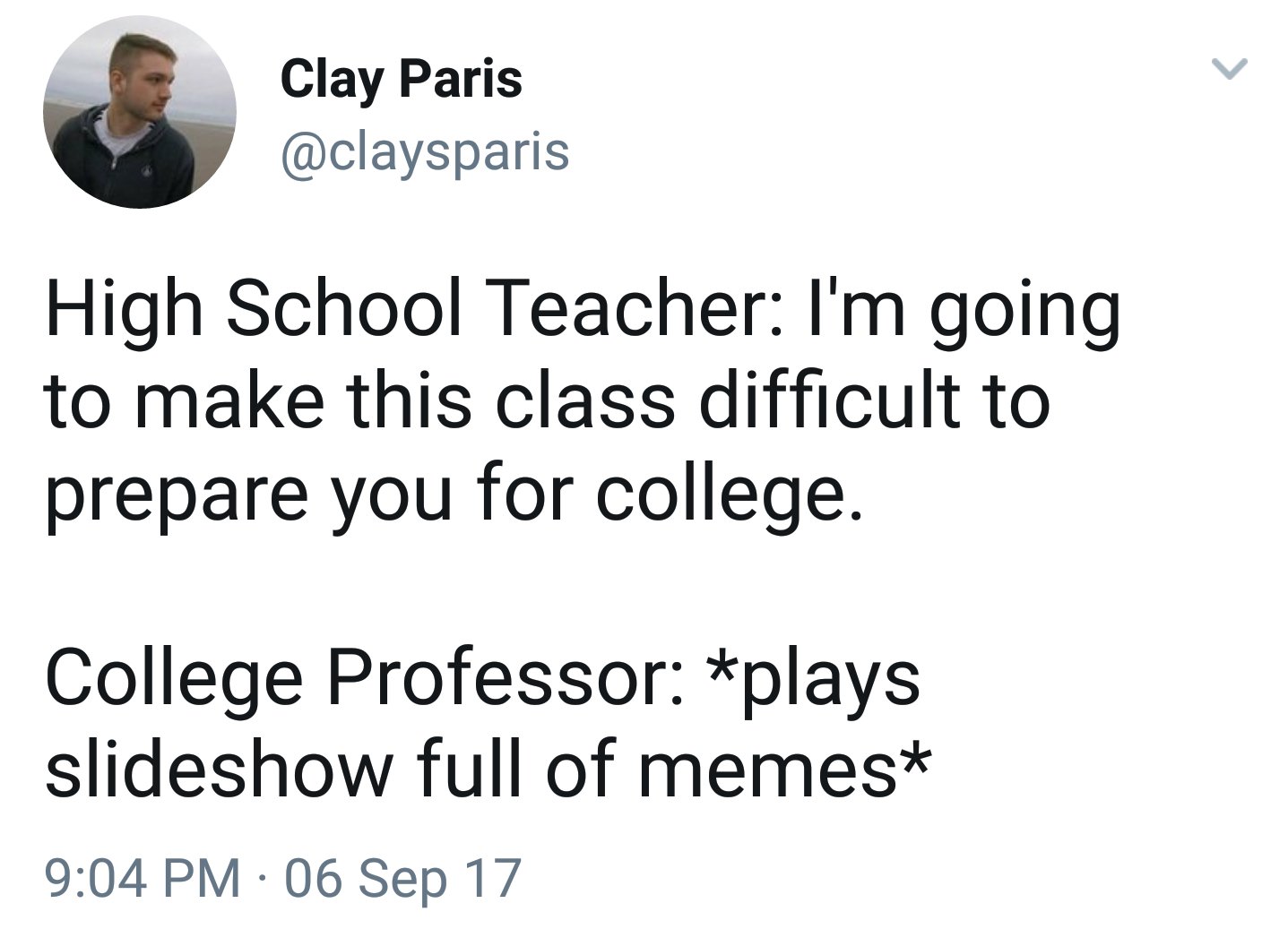Chris Andrews
Notes and Overview for Week 11
Agenda
- Questions re the Digital project, which is due [checks notes] next week?
- Circulation Applications: Dank Memes, Digital Activisms, Ethics and Technics of Circulation, Reproduction and Fascism, whatever you want to call it.
Assigned readings can always be found on Blackboard. Addional resources should be there, and if not are accessible through our Library)
Notes and Questions readings this week:
- Benjamin, 1935 The Work of Art in the Age of Mechanical Reproduction (Trans. 1969)
- Sparby, 20XX. Chapter 1: The Need for an Rhetorical Ethical Memetic Toolkit
- Wetherbee, 2015. Picking Up the Fragments of the 2012 Election: Memes, Topoi, and Political Rhetoric
some key terms/concepts:
- meme: (Coined by Dawkins in 1976, The Selfish Gene) “a unit of cultural transmission, or a unit of imitation” that functions analogically but not literally like a self-replicating gene; examples he provides are “tunes, ideas, catch-phrases, clothes fashions, ways of making pots or of building arches”; any aspect of human culture or behavior that propagates socially, that is any cultural entity or thought that replicates itself—as genes do—in the minds of others (Sparby)
- meme as genre: reliance on irreverent parodic humor, potential for rapid circulation and replication across social media, multimodal composition for digital consumption
- content meme as image macro (a meme that includes an image with some text over it)
- meme as memetic behaviors or “actions and behaviors recapitulated in new but relevant contexts” (i.e. same kinds of aggressive/sexist responses to woman self-identifying on different types of message boards)
- meme vs meme vehicle (i.e idea vs artifact)
- memetics
- topoi: locations or places for inventing arguments
- might be heuristic or dialectical patterns a la Aristotle, formalized or memorized patterns a la Roman rhetoric), as in patterns or assumptions that endiure through time and provide us with form and material for rhetorical invention
- contemorary rhetorical theory understands topoi as ideological locations that can trigger conceptual/emotional associations for audiences in contexts
- commonplaces*, or **common topics
- ideograph (note, btw, NOT Pound’s ideogram), more common in Communication Studies, words that operate as symbols, such as “freedom” or “the American Dream” that can be mobilized in lots of different ways – ideologically loaded/loadable terms that can be a kind of topoi in their infinite flexibility.
- viral content vs meme
- ideology Crowley’s notion of ideology as “any system within which beliefs, symbols, and images are articulated in such a way that they assemble a more or less coherent depiction of reality and/or establish a hierarchy of values” (65).
- lexia (Barthes, S/Z)”: meaningful textual unit of reading–a few words, a few sentences, but noted for density of meaning in the fragment; it’s a “best possible space in which we can observe meanings” (Barthes qtd in Wetherbee)
Wetherbee on memes to lexia:
in the Internet age, a memetically successful topos emerges as such through a sort of corporate agency: typically, multiple individuals recognize one nugget-sized chunk of a larger text as significant; this “nugget” becomes a meme once numerous people replicate it outside its immediate original context; it becomes an especially successful meme once this replication induces a snowball effect of further replication.
Walter Benjamin on art and reproduction:
Memes and circulation: ‘These Fragments I Have Shored Against My Ruins’
Let’s talk about memes:
- What makes a meme a meme/what is a meme/what distinguishes a meme from other kinds of viral content?
- “not all viral content is memmetic, nor does all memetic content go viral”
- Why do memes matter as “online practices of discursive replication and circulation” (Wetherbee, 2015)
- Not all memes matter, but when do memes matter?
- Where do (successful) Internet memes come from? (How does Romney’s binders help us think about this?)
- Why do “Individual rhetors will struggle especially to deliberately coin successful Internet memes.”?
- When do memes have dangerous repercussions? What is the effect of meme (internet meme culture) on rational (?) deliberation? What is the power of topos?

- Compile 3 to 5 of your current favorite memes and post them to the “memeblog” in Blackboard. Post what you want–it can be as niche or broad as you want. Remember it’s a class and we’re people.
- Browse through others’ memes, look at them and familiarize yourself with them.
- Discussion questions:
- Which are your favorites, and why?
- Did you find any new memes you like and didn’t expect?
- Are there any you don’t like, and why not?
- More questions:
- what kinds of technological and access needs must be met to make a meme?
- what kinds of rhetorical tools do memers need?
- Memetic Rhetorics: Toward a Toolkit for Ethical Meming, by Derek Sparby
- “memes are never solitary items but are instead a collection of texts that rely on other cultural artifacts as well as direct action from users to gain memetic success” (p. 48)
- https://imgflip.com/memegenerator
- https://knowyourmeme.com/
What are the rhetorical tools necessary to create successful memes? Sparby posits eight components in a memetic rhetoric toolkit:
- Possessing the functional digital skills for creating memes
- Using irony and hyperirony for humor
- Understanding identification and how to make content resonate with viewers
- Understanding kairos and how to capitalize on memetic moments
- Recognizing intertextuality and building it into memetic content
- Knowing how to remix texts so that they are recognizable as iterations of previous memes
- Strategizing how to use the social media platform to advance memetic goals
- Engaging in rhetorical velocity to think about further iterations and versions of memetic content.